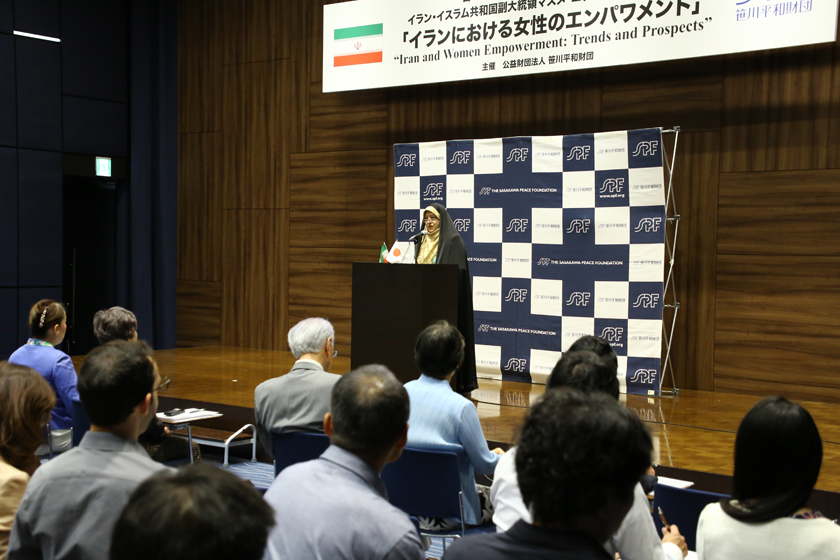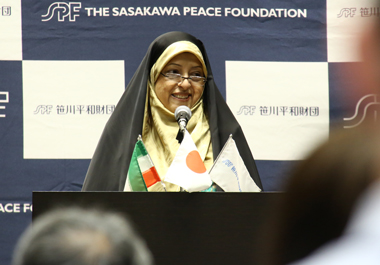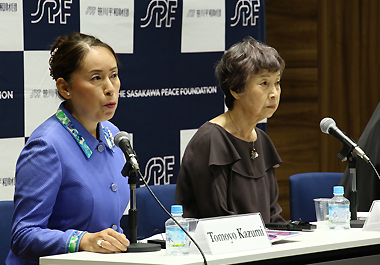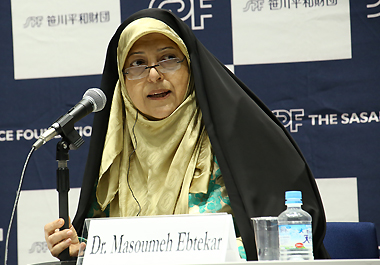Dr. Ebtekar continued by outlining the progress made in Iran over the past 40 years toward women’s empowerment in areas from political participation to sports and public health. In particular, she highlighted the government’s attention to expanding access to education, calling it “one of the most important areas where Iran has invested for all members of its society.”
She also pointed out that women now make up more than 60% of those who pass the national entrance exam for university, explaining that “the trends are really remarkable. This indicates that there's a lot of hope and a lot of optimism.”
However, while women enjoy increased access to higher levels of education, they still face barriers to full economic empowerment, with statistics from 2017 estimating that only 14.9% of Iranian women participate in the workforce. One possible limiting factor according to Dr. Ebtekar is the influence of traditional gender roles in Iran, wherein women are expected to care for the family and home while men provide financial stability.
While she argued that these traditional gender roles have a place in Iranian society, she also emphasized the need for the government to provide support for working women, particularly heads of household who need to earn a living wage for themselves and their family. In addition, she asserted that Iranian society should recognize the inherent economic contribution of household work to the economy, citing a study estimating the economic value of household services as the equivalent of 22-30% of Iran’s GDP.
Looking to politics, Dr. Ebtekar outlined Iran’s recent push to implement indicators of gender equity across government. While Dr. Ebtekar herself made history as the first female vice president in Iran following the Islamic Revolution, currently only 18 out of the 290 representatives in the national parliament are women. “This is not high enough,” she explained. “We’re addressing a target of increasing the number of women parliamentarians, and I think this is very important.”
As part of the effort to increase female representation, Dr. Ebtekar highlighted President Rouhani’s initiative to appoint women to 30% of the major decision-making posts in his administration, noting that the number of female vice ministers has recently increased from 10 to more than 60.



